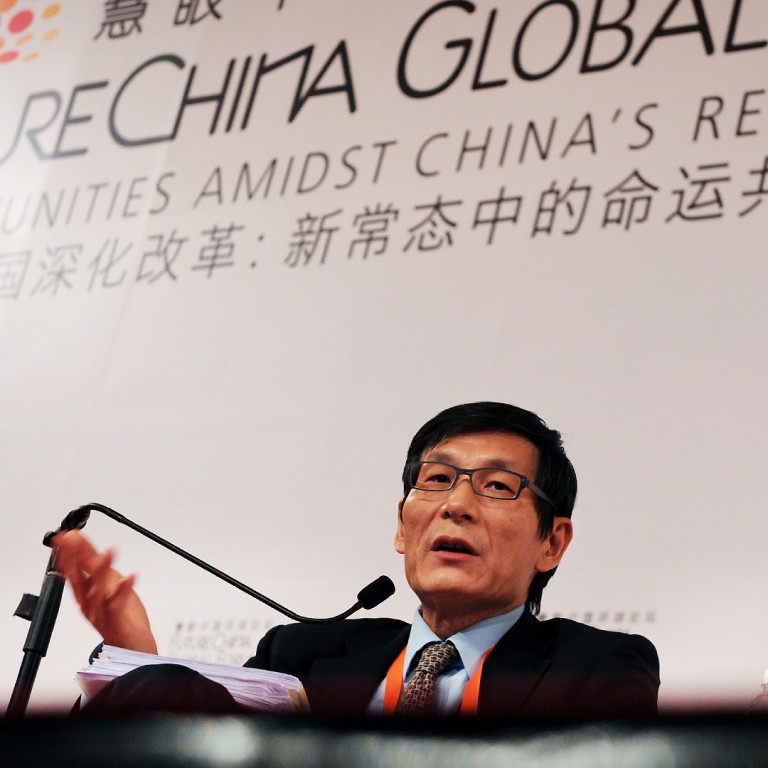
New | China’s suspension of IPOs amid stock market crisis not a ‘good measure’, says son of former premier
Beijing's decision to suspend new listings amid the worst stock market crisis for years is not a good long term solution, a top Chinese investment banker told a forum in Singapore on Monday.
Beijing's decision to suspend new listings amid the worst stock market crisis for years is not a good long term solution, a top Chinese investment banker told a forum in Singapore on Monday.
Levin Zhu Yunlai, son of ex-premier Zhu Rongji and former chief of China International Capital Corp (CICC), said that the government must think of a more systemic approach to dealing with the challenges it is facing in the capital market, including the rebuilding of investors' confidence following the recent stock market panic.
“For China’s capital market to function well, we still have a long way to go,” said Zhu, who left CICC, China's top homegrown investment bank, late last year.
“I don’t think the suspension of IPO (initial public offering) is a good measure,” said Zhu, speaking in English in response to a question from the audience about recent actions taken by the Chinese government to stabilise the stock market.
Some 17 Chinese banks lent China Securities Finance Corporation, the state-backed margin finance agency, a record 1.3 trillion yuan, while the central bank also pledged to provide liquidity support to domestic brokerages.
The State Council, China's cabinet led by premier Li Keqiang, also ordered the suspension of initial public offerings (IPOs) on the domestic stock markets.
"It is not necessarily unimaginable to see global [economic] slowdown happening once again," said Zhu, who warned that global central banks' efforts to print money to ease market liquidity could have long term knock-on effects on global economic development.
"Seven years after the 2008 global financial crisis, I think we still don't dare to say that the whole world is now already out of recession."
Since leaving CICC late last year, Zhu is now a professor at the School of Economics and Management at Tsinghua University, the institution where his father served as dean and has gained a reputation for its influence on government policies for national economic reforms.
He said that the economic slowdown is being felt around the world, but that it is particularly "visible" in China, leading people to worry about the effects a shrinking of the world's second largest economy could have on global markets.
The National Statistics Bureau last week reported gross domestic product growth of 7 per cent year-on-year in the second quarter. The rate was same as the first quarter and beat economists' forecasts of 6.8 to 6.9 per cent growth, sparking concern over whether the government figure was accurate. China’s finance ministry has officially defended the accuracy of the country’s economic statistics.
Zhu noted it may be understandable to see some emergency policies to restore investors’ confidence especially amid market panic but the government also must think how large an intervention would be needed and how the market can play its role.
The departure of Zhu from CICC late last year came as a surprise to financial insiders given his long-time leadership and close ties with government. During his time at CICC, the firm helped countless large state-owned enterprises to go public, including China’s oil giant Sinopec and the country’s leading insurer China Life.
On Monday, the People’s Daily, the mouthpiece of the Communist Party, published an article defending Beijing’s recent policy interventions in the stock market. The newspaper called such government interventions in the stock market an “international norm”, citing Hong Kong’s experience in 1997 Asian financial crisis and the role of the US Federal Reserve’s interventions in the 2008 global financial crisis.

